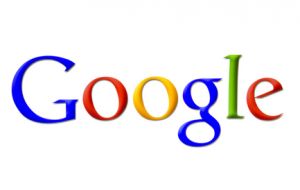MercoPress. South Atlantic News Agency
Google is in a borderline crisis with European Union
 The EU accused Google of selectively displaying results based on its preferences
The EU accused Google of selectively displaying results based on its preferences By Thomas Richardson - Google has reached a settlement with regulators of the European Union after antitrust charges were levied against the company. The EU accused Google of selectively displaying results based on its preferences. Google, which owns a virtual monopoly on Internet queries in Europe, is also accused of favouring the use of its own products in search results, which has drawn complaints from competitors, and the attention of regulators.
As part of the settlement, Google will roll out potential solutions for competitors to examine over the next month. If successful, the company could avoid fines upwards of 5 billion dollars and the legal fees inherent in ongoing antitrust battles.
The Agreement
To appease EU regulators, Google has agreed to disclose potential conflicts of interest in search results. According to technology website V3, Google will display search results related to its own products and services by enclosing them in a box on the search pages.
In addition, the company will direct some attention towards its competitors. According to the Wall Street Journal, it will display at least three competitors along with its own offerings. For example, if someone searched for an online document storage, Google would display its Google Docs product, along with at least three other online document providers. The company will keep all these stipulations in place for the next five years if regulator and competing companies agree to them.
What Led to the agreement?
According to The Tribune, Google owns at least a 90 percent share of web search in EU countries. Major competitors of Google, led by Microsoft, have continued to file complaints against the search giant with EU agencies, as well as those in the U.S. Google was able to avoid antitrust charges in the U.S. without making any changes, unlike in Europe.
Along with the aforementioned regulators expressed concerns about myriad other issues. Google continuously displayed websites in their searches even when web administrators request they don't. The company also censored some advertisers from using any non-Google platforms and writing codes in a way that made them nearly impossible to port elsewhere. There are also concerns about Google using Android, its smart-phone operating system, to manipulate that market, as well.
Effect on Businesses
Businesses will gain at least three areas of the market if the agreement works as planned. First, search results will be more organic. As it stands now, Google can place an ad forVPS cPanel at the top of its searches simply because it chooses to. Now, it will be forced to display competitor products next to its preferred results. They had no say over whether Google used their information or not before the agreement. Businesses are now free to find better advertising deals through competitors such as Bing and Yahoo, and advertising code will be more portable between platforms.
Is It enough?
Many of the companies that filed complaints about Google aren't necessarily satisfied with the decision, according to the New York Times. Some referred to it as a “half-hearted attempt.” Competing companies will be heavily involved in the screening process, and the current version of the agreement may not be the final one.
The legal battles are unlikely to stop here simply because of Googles' dominance, a la Microsoft.




Top Comments
Disclaimer & comment rules-

-

Read all commentsDoes anybody GAF about this?
Jun 24th, 2013 - 07:59 pm 0Well yes, I do...
Jun 25th, 2013 - 12:19 am 0You go into a google search to buy a knitted kangaroo http://www.theaustralian.com.au/national-affairs/some-yarn-julia-gillard-knits-a-royal-roo/story-fn59niix-1226669067651 and it tries to flog you a second rate RG politican....at an inflated price.
Commenting for this story is now closed.
If you have a Facebook account, become a fan and comment on our Facebook Page!